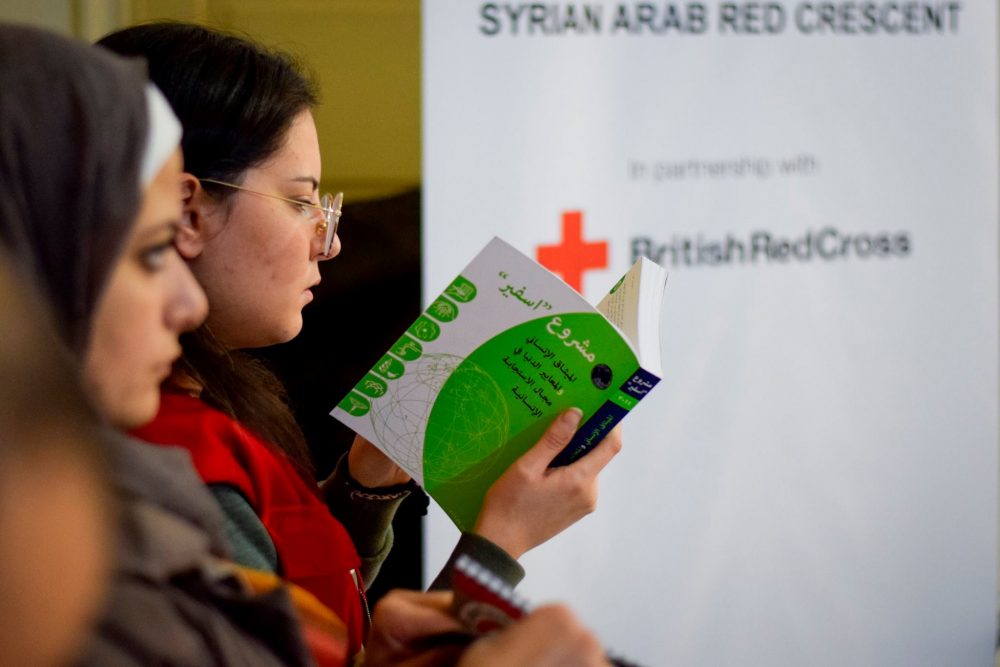What I Am Reading Now
Some books fall into that category of “Must Read”– To Kill a Mockingbird, Romeo & Juliet, Little House on the Prairie, A Tale of Two Cities, Charlotte’s Web come immediately to mind. Some say these books, and countless others, are part of the American canon; others describe them as rites of passage. In many ways, they serve […]

Some books fall into that category of “Must Read”– To Kill a Mockingbird, Romeo & Juliet, Little House on the Prairie, A Tale of Two Cities, Charlotte’s Web come immediately to mind. Some say these books, and countless others, are part of the American canon; others describe them as rites of passage. In many ways, they serve as foundational knowledge — a way to view the world around us.
The Humanitarian Assistance field too has its own canon; its own set of “Must Reads.” One of those reads is The Sphere Handbook: Humanitarian Charter and Minimum Standards in Humanitarian Response. This resource has been on my bookshelf since it was first published twenty years ago. I would like to recommend it become one of your go-to resources too; I think you’ll find it invaluable as we face ever-more complexity in grantmaking after disasters. Let me share more.
I have been a disaster grantmaker since 2003 when I joined the Bill & Melinda Gates Foundation and helped head up their Disaster Relief portfolio specifically focused on meeting the immediate needs of large scale international disasters as well as building the capacity of organizations globally to prepare for and respond to disasters. Since that time, the world’s attention has shifted and rotated to include famines, refugee crises, hurricanes and typhoons, tsunamis, wildfires, earthquakes, and countless other natural and human-caused disasters. With the increased pace at which funders are called upon to respond, having excellent, readily accessible resources to aid in decision-making is essential.
Thankfully, the domestic and global Humanitarian Assistance sector has learned from every event that has transpired in the past 16 years – changing programs and processes to improve health and life outcomes for disaster-affected communities. As part of my job, supporting disasters in a philanthropic role, I do my best to understand these changes . . .and seek to learn the answers to questions such as “What are the ten core principles of the humanitarian code of conduct?” or “How can secondary mortality be reduced in post-disaster contexts?” or “How can aid best be delivered in urban settings?” As you might suspect, my go-to resource for these types of questions is the Sphere Handbook.
Julien Schopp, director, humanitarian practice at InterAction says this: “The Sphere Handbook remains more relevant than ever as it is the most recognized tool for effective humanitarian action. Its uniqueness is not only its practical guidance on how to better implement humanitarian programs, but also the principles and ethical considerations that define humanitarian action.”
The Sphere philosophy is based on two core beliefs:
- People affected by disaster or conflict have the right to life with dignity and, therefore, the right to assistance; and
- All possible steps should be taken to alleviate human suffering arising out of disaster or conflict.[1]
The Handbook is divided into four foundational chapters:
- What is Sphere
- The Humanitarian Charter
- Protection Principles
- The Core Humanitarian Standard
Supported by four technical chapters that include minimum standards in:
- Water Supply, Sanitation and Hygiene Promotion (WASH)
- Food Security and Nutrition
- Shelter and Settlement
- Health
We know that we are living in incredibly complex times – back-to-back disasters mean that we don’t have the luxury of addressing one disaster at a time. It is critical that, as disaster funders, we have the awareness of the How and the Why that grounds humanitarian practitioners work. Resources like the Sphere Standards underpin that awareness.
Just as the “Must Reads” from an earlier time in our life shaped our thinking, there are ready references that can improve our work and inspire our funding. As I hope you see, the Sphere Handbook serves just that purpose – while at the same time enhancing our awareness and understanding of how to be responsible and respected in this space – crucial as we all work to become more thoughtful and strategic funders.
[1]P. 4 of handbook
